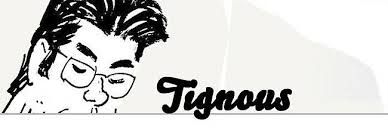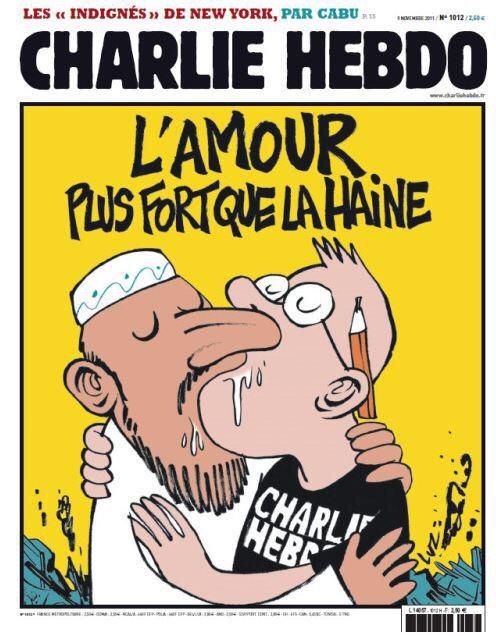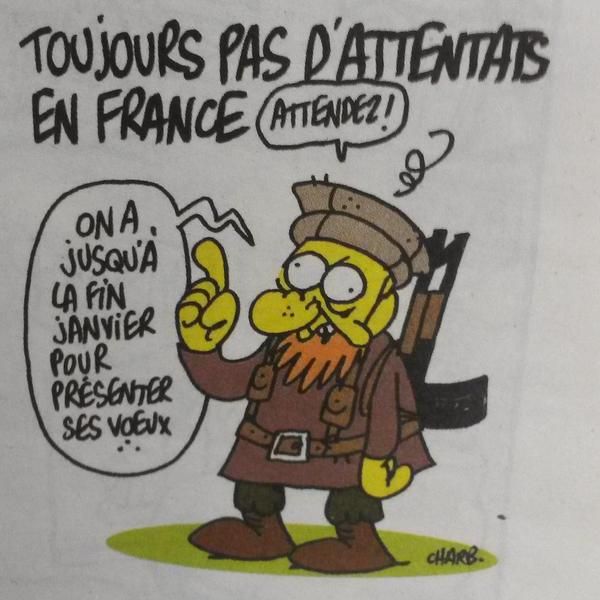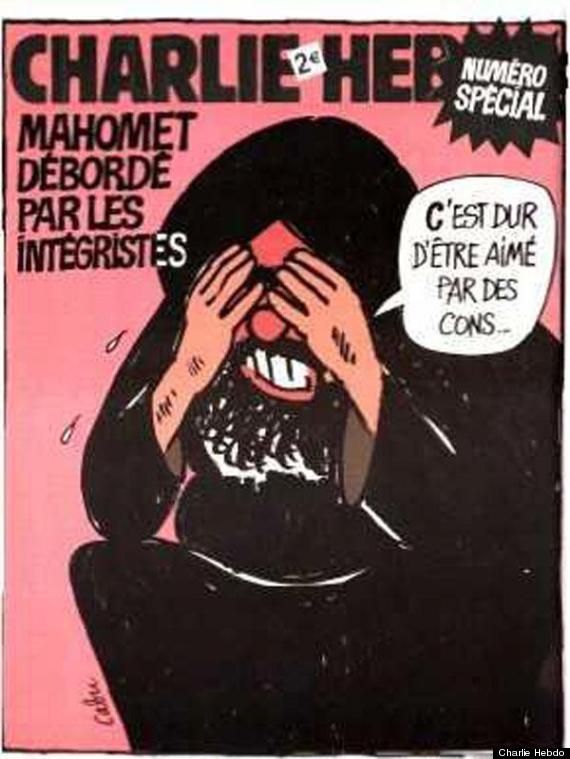"C'est peut-être un peu pompeux ce que je vais dire, mais je préfère mourir debout que vivre à genoux."
"It may be a bit pompous for me to say this, but I prefer dying on my feet to living on my knees."
— Stephane Charbonnier, aka Charb, the editor of Charlie Hebdo, who was among those killed in today's attacks.
The assassination — for that's what it is — of four cartoonists, six other Charlie Hebdo staff members and two policemen unleashed a torrent of grief and solidarity around the world today as news spread of the attack by masked gunmen on the Paris offices of the satirical weekly.
That the gunmen reportedly shouted "Allahu Akbar" ("God is great") and "The Prophet has been avenged" points to the likelihood that the shootings were in retaliation for the several issues of the magazine that carried cartoons depicting the Prophet Muhammad. (It should be noted from the start that Charlie Hebdo is an equal-opportunity offender; recent cartoons have also lampooned North Korean leader Kim Jong-un and the birth of Christ.) Time has a short history of the magazine's provocations, and Mic.com has posted a selection of the Muhammad cartoons.
Thousands of people gathered throughout France this evening to express their solidarity with the slain journalists, and Radio France, Le Monde and France Télévisions have offered to support the magazine (which may have lost as much as half its staff) in order that it may continue publication. On Twitter, the hashtag #JeSuisCharlie (I am Charlie) quickly became the universal sign of solidarity with the slain cartoonists. The Guardian has a continuously updated page of news about the attacks, and Tom Spurgeon has posted a thorough list of articles at The Comics Reporter. Vox has a roundup of cartoons drawn in response to the attacks; my favorite is the one of the quartet arriving in heaven and God saying "Oh no! Not them!" Nick Abadzis posted a cartoon as well.
Here's a look at the four cartoonists who were murdered today.
Stéphane Charbonnier (Charb), the editorial director of Charlie Hebdo, was born in 1971. He had been on staff at Charlie Hebdo for 20 years and also contributed to L'Echo des Savanes, Télérama, Fluide Glacial and L'Humanité. At Charlie Hebdo, he not only published the Muhammad cartoons but pushed back hard against those who threatened him because of it. Still, when the French government tried to prohibit Muslims from protesting in 2012, he challenged that as well, saying, "Why should they prohibit these people from expressing themselves? We have the right to express ourselves, they have the right to express themselves, too."
Jean Cabut (Cabu) was born in 1938 in Châlons-sur-Marne, and his work was first published in a local newspaper in 1954, when he was just 16. Cabu was drafted into the French army during the Algerian War and served for two years, an experience that left him with a distrust of authority. He was part of the original staff of the satire magazine Hara-Kiri, which was a predecessor of Charlie Hebdo. He created a number of popular characters, most notably Mon Beauf, a caricature of a grouchy, racist, militarist Everyman whose name became sort of a French equivalent of "redneck."
In 2006, Cabu drew a caricature of the Prophet Muhammad with the caption "Overwhelmed by fundamentalists"; the Prophet is saying "It's tough to be loved by these jerks." While he regularly mocked top French officials, Cabu had particular disdain for the anti-immigrant National Front movement and its leader, Jean-Marie Le Pen. He authored two travel books, Cabu en Amérique and Cabu au Japon, and an exhibit of his work was shown in the Paris City Hall in 2006-7. The singer, songwriter and artist Mano Solo, who died in 2010, was his son.
George Wolinski, who was also one of the founding members of Hara-Kiri, was born in Tunis in 1934. When he was 2 years old, his father was murdered by a former employee; he told his wife in a 2012 memoi,r “The ghost of my father has haunted me all my life.” The Wolniski family moved in 1946 to Paris, where he studied art. Like Cabu, Wolinski served in the French army during the Algerian War. Wolinski co-founded the satirical magazine L'Enragé during the student protests of 1968, and his work appeared in Libération, Paris-Match, and L'Écho des savanes as well as Charlie Hebdo. He was awarded the Grand Prix d'Angouleme in 2005; the short film above was made by Benoît Peeters as one of a series on all the Grand Prix winners.
Bernard Velhac (Tignous) was born in Paris in 1957 and was first published in 1980. His work appeared in Marianne, Fluide Glacial, L’Humanité, L’Express and Télérama, and he is the author of eight books.




